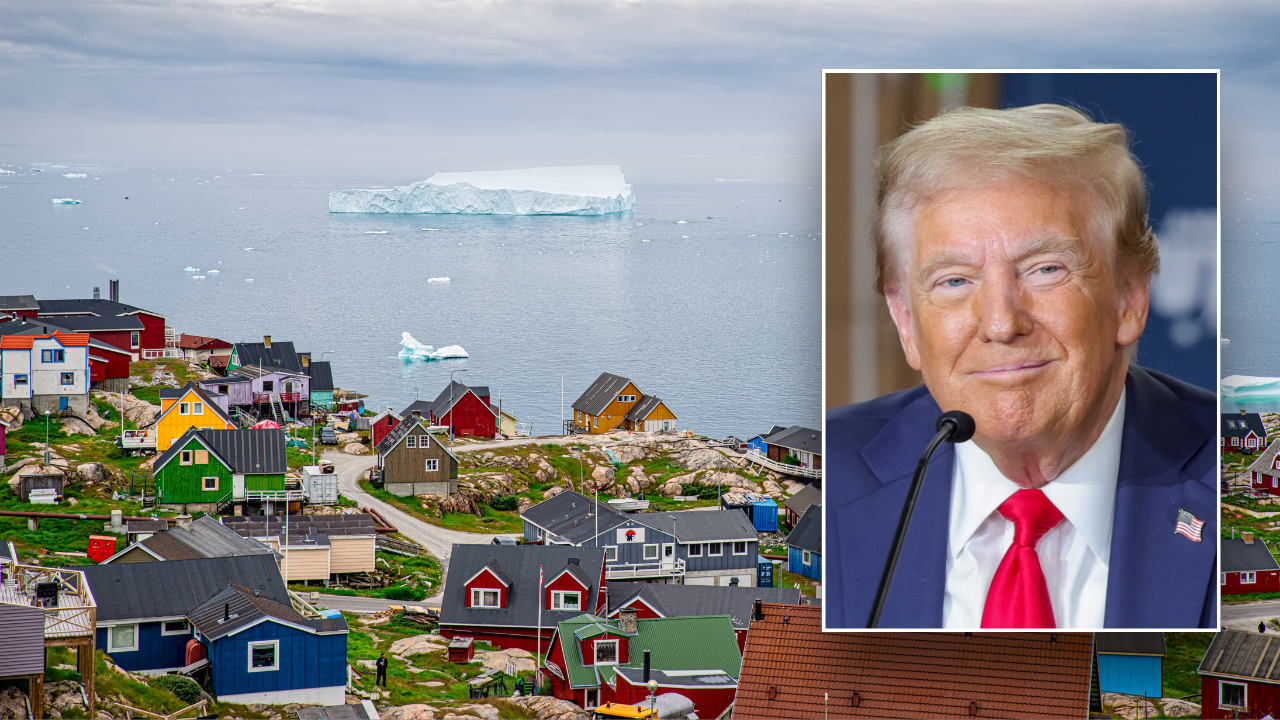The debate over Greenland's future continues to gain momentum, with discussions surrounding the island's historic importance to US national security.
Greenland acquisition: Experts offer their opinions on President-elect Trump's plan.

This week, President-elect Donald Trump's rhetoric regarding buying Denmark's Arctic territory has become more serious, as his son Donald Trump Jr. made a surprise visit to Greenland.
In a press conference at Mar-a-Lago on Tuesday, the president-elect did not rule out using military coercion to gain control of Greenland.
Denmark's leaders maintain that the Arctic territory is not for sale, with Prime Minister Mette Frederiksen stating that Greenland is for the Greenlandic people and that the US should play a large role, not Russia or other countries.

Greenlanders will decide whether to remain part of Denmark or not later this year, as the U.S., China, and Russia compete for control over the melting Arctic region.
Greenland, being a NATO ally, is protected by Article 5 of the NATO charter, which states that any military attack on a NATO ally requires a military response from the rest of the alliance.
According to Ian Bremmer, founder and president of the Eurasia Group, it is not useful to discuss the implications of Article Five because the United States will not use force on its NATO allies. There are numerous reasons why this would never occur.
Bremmer stated that the president's threats undermine the leverage the U.S. has in terms of international rule of law, bringing the world closer to the law of the jungle.

In 2019, Trump first mentioned buying Greenland due to its abundance of rare earth minerals, which are essential for electronics, semiconductor manufacturing, the defense industry, and the emerging clean energy economy.
Sherri Goodman, the first undersecretary of Defense for Environmental Security at the Pentagon in the 1990s, wrote a book on the impact of climate change on national security titled "Threat Multiplier: Climate, Military Leadership and the Fight for Global Security."
Goodman has seen firsthand how important Greenland is to the U.S. military.

Goodman stated that for many years, there has been a military base in Greenland's north to monitor incoming missiles or satellites from Russia. However, due to climate change, traveling to and navigating around Greenland is becoming increasingly accessible.
During the Cold War, the Arctic region was a strategic location for the U.S. and the USSR to engage in a nuclear exchange using long-range bombers and ballistic missiles. The GIUK Gap, located east of Greenland, was a crucial access point for Russia's operations in the Atlantic Ocean. As a result, Greenland became a vital location for early-warning networks, and today it hosts the northernmost U.S. military installation, Pituffik Space Force Base, which houses a significant portion of the global network's missile warning and space surveillance sensors.

Recently, China's ambitions in the Arctic have intensified, with plans to construct infrastructure and shipping lanes that have been made possible by climate change. Despite submitting bids from state-owned businesses to purchase land in Iceland and Greenland, they have not been successful so far.
The Arctic is experiencing a fourfold increase in temperature rise compared to the rest of the world, facilitating access to its rare earth minerals.
The U.S., NATO, and NATO allies are working to prevent China and Russia from obtaining resources in the Arctic. Goodman stated that China has a history of using surrogate science and investigation to gain access and learn about territories in the Arctic.

At a Defense Department briefing on Wednesday, Pentagon deputy press secretary Sabrina Singh was queried about Greenland. She responded, "I'm not going to speculate. That's for the incoming administration to address."
At a press conference in Paris on Wednesday, Secretary of State Antony Blinken addressed a question about Greenland and stated that the idea of Greenland being sold to another country is not a good one, but it's unlikely to happen. Therefore, it's not worth spending a lot of time discussing it.
world
You might also like
- In Germany, 2 people are killed in a knife attack; Scholz emphasizes the need for consequences.
- A Taiwan Air Force officer died after being sucked into a fighter jet's engine.
- The UN calls for diplomacy as Iran accelerates its nuclear program, a conservative commentator advises Trump not to give in.
- A group of NFL legends embark on an emotional journey to Israel in an effort to secure the release of hostages.
- Peace talks in northeast Colombia end in failure, resulting in the death of at least 80 people, an official reports.



















